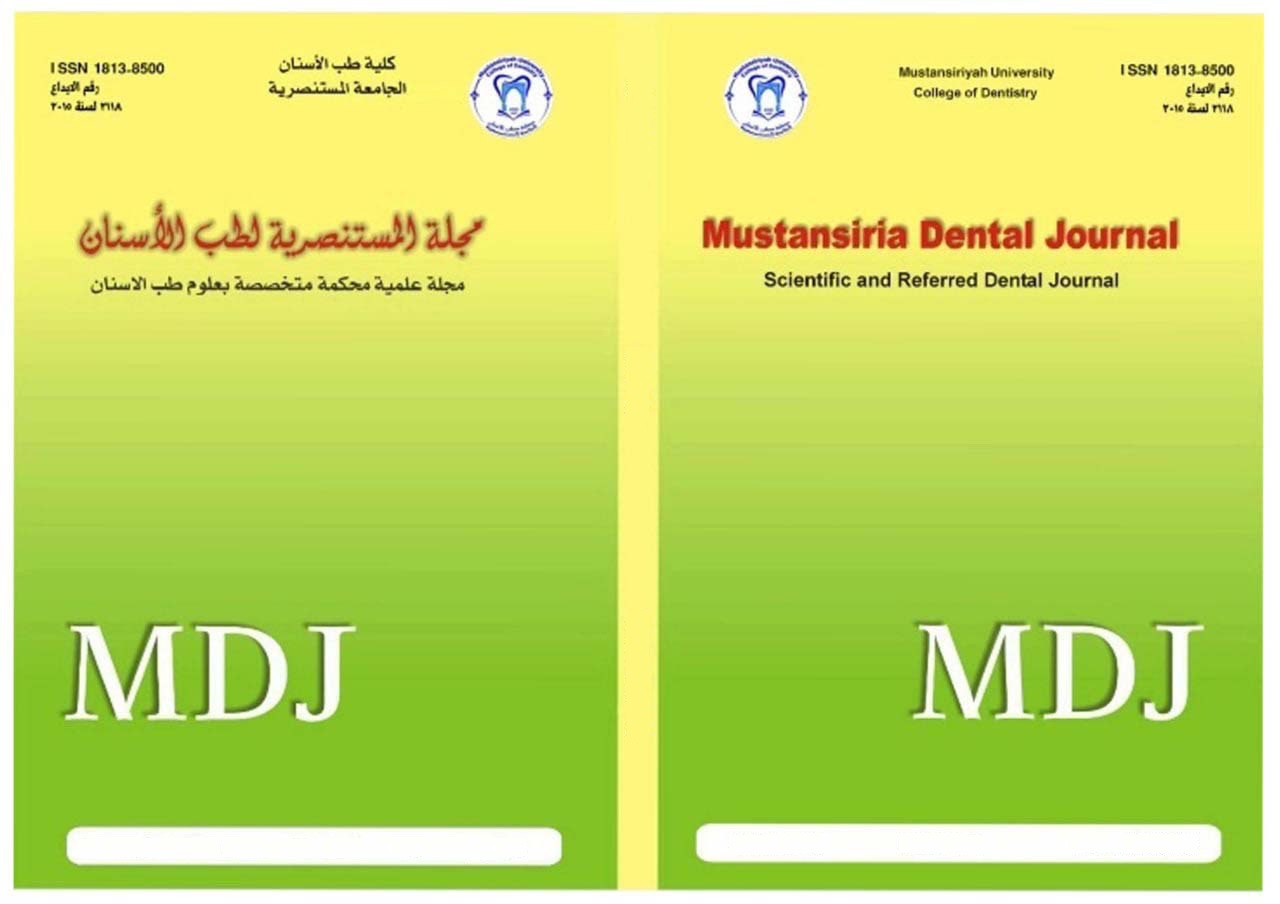Abstract
Background: Soft denture liners are a type of dental prosthesis that functions as a cushioning material, alleviating the stress induced by the act of chewing. They offer relief to persons who encounter discomfort when wearing complete or partial dentures, particularly when these dentures are situated on rigid surfaces that support the denture.
The objective of this study: is to assess the effects of including L.Salvadora persica. and green tea (G.Tea) extract powders on the surface roughness and hardness characteristics of acrylic-based soft liners.
Materials & Procedures: 30 specimens were constructed using wax molds and acrylic-based heat-cured denture soft lining material. The standard curing procedure was used. The samples were separated into three equal groups: group A, the control group, with no additives in the soft-liner material; group B, with 5.12% weight percept L.salvadora persica extract powder; and group C, with 5.12% weight present green tea (G.Tea) extract powder. The samples were then prepared for surface hardness and roughness testing.
Results: The results revealed that there was a non-significant rise in the mean values of surface roughness for both group B and group C, group B having the highest mean values followed by group C. When compared to the control group, the results showed a considerable rise in the mean values of surface hardness in group (B), which had the highest mean value for surface hardness, followed by group (C).
Conclusion: The results of this study indicate that the incorporation of L.salvadora persica at a concentration of 1.024g and green tea (G.Tea) extract powders at a concentration of 1.024g shown a positive impact on the surface hardness of denture soft lining materials. However, no significant influence was observed on the surface roughness of these materials.
The objective of this study: is to assess the effects of including L.Salvadora persica. and green tea (G.Tea) extract powders on the surface roughness and hardness characteristics of acrylic-based soft liners.
Materials & Procedures: 30 specimens were constructed using wax molds and acrylic-based heat-cured denture soft lining material. The standard curing procedure was used. The samples were separated into three equal groups: group A, the control group, with no additives in the soft-liner material; group B, with 5.12% weight percept L.salvadora persica extract powder; and group C, with 5.12% weight present green tea (G.Tea) extract powder. The samples were then prepared for surface hardness and roughness testing.
Results: The results revealed that there was a non-significant rise in the mean values of surface roughness for both group B and group C, group B having the highest mean values followed by group C. When compared to the control group, the results showed a considerable rise in the mean values of surface hardness in group (B), which had the highest mean value for surface hardness, followed by group (C).
Conclusion: The results of this study indicate that the incorporation of L.salvadora persica at a concentration of 1.024g and green tea (G.Tea) extract powders at a concentration of 1.024g shown a positive impact on the surface hardness of denture soft lining materials. However, no significant influence was observed on the surface roughness of these materials.
Keywords
heat-cured denture soft liner
L.Salvadora per
Keywords
.
